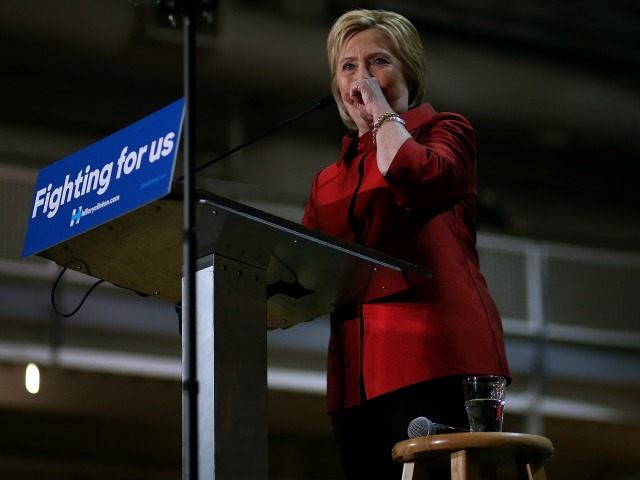With all the joy and eagerness of a patient about to have her teeth drilled, Nevada’s caucus-goers gave Hillary Clinton a badly needed win, and left Sen. Bernie Sanders (I-VT) asking what comes next. When all the shouting was over, Clinton, 68, had defeated her 74-year-old Brooklyn-born opponent by less than 700 weighted “votes” out of the roughly 11,800 cast. Actual turnout had dropped to about 80,000 from 117,600 in 2008.
Her win was about unions, African-Americans, and Sen. Harry Reid (D-NV), the outgoing Senate Minority Leader. According to entrance polls, African-American caucus-goers went for Clinton by better than a three-to-one, even as Clinton lost white voters by a whisker, and was down by 8 points among Latinos.
Clinton held a double-digit margin among union households, which was fueled in part by the tacit but crucial support of Reid – the former chair of the Nevada Gaming Commission, who helped to ensure that the casino workers attended the caucuses. Like a gambler on a roll, Clinton swept the contests held in the casinos on the Las Vegas strip.
Knowingly, Randi Weingarten, the head of the American Federation of Teachers, and a long-time Clinton ally tweeted:
For yesterday’s success, Team Clinton can now heave a collective sigh of relief as it heads into next Saturday’s South Carolina Democratic Primary, in which African-American voters are expected to a majority of primary voters, and where Rep. Jim Clyburn (D-SC), the third-ranking House Democrat, has endorsed Clinton. Polls taken pre-Nevada already showed Clinton coasting to a 20-plus point win.
Meanwhile, Robby Mook, Clinton’s Campaign Manager, who is paid less than Clinton confidante Huma Abedin, can relax about holding on to his job. After Clinton’s subpar performance in Iowa and her shellacking in New Hampshire, Mook had to be worrying about his head being on the chopping block.
Unlike Abedin, Mook was not Clinton’s surrogate daughter, and unlike John Podesta, the Clinton Campaign Chair and a veteran of Bill Clinton’s and Barack Obama’s White Houses, Mook was not a Clinton social peer. Rather Mook was a hired gun, the guy who delivered Nevada to Clinton back in 2008.
So much for the winners.
For Sanders, his Nevada defeat can only be read as a turning point, a place on the map where reality intruded on his personal grail quest. With a likely loss in South Carolina, Sanders is looking more like a protest candidate than a contender for the nomination. Just hours after Nevada’s results, his campaign blasted out an email seeking campaign dollars, and blaring: “The wind is at our backs.” Maybe so, but it sure looked like reality was busy raining on their head, and the downpour won’t be ending anytime soon.
Come March, the primary calendar will be fought in states that have more in common demographically with Nevada and South Carolina than with New Hampshire. On Super Tuesday, March 1, Clinton will likely chalk-up wins all across the South and Texas, with Sanders winning his home state of Vermont, and the two contenders duking it out in Massachusetts Primary, and the Colorado and Minnesota caucuses. With Clinton already holding a commanding lead among Democratic “super delegates,” Sanders will need to pull-off a string of upsets to maintain his viability.
Sure, Sanders can drag the primary season out if so chooses to. He has money in the bank, and as last night’s email put it, “Our campaign is funded by more than 4 million individual contributions,” that his campaign can re-visit. Also, Sanders is aided by the absence of winner-take-all primaries, and the fact that delegates to the Democratic Convention are awarded on the basis of proportionality.
To put things in context, in 2008 Barack Obama clinched the Democratic nomination on June 3, 2008, after pocketing the endorsements of about 60 super delegates. By contrast, on the Republican side, John McCain had wrapped up the nomination three months earlier, on March 4, 2008. Yet without wins in delegate rich contests like Illinois and Ohio in mid-March, Sanders will have some explaining to do.
Still, Clinton should not gloat, not yet. Nevadans who said that honesty mattered most gave Sanders more than 80 percent of their votes, while those who cared most about a caring candidate went for Sanders by almost as wide a margin. At the same time, Clinton’s victory came against the backdrop of her continuing to resist the release of the transcripts of speeches to the Gods of Wall Street, and the drip-drip-drip of emails.
Like Clinton’s candidacy, Nevada felt transactional, devoid of uplift and music. If Clinton hopes to win in November, she will have to make her candidacy be about something larger and more appealing than herself.

COMMENTS
Please let us know if you're having issues with commenting.